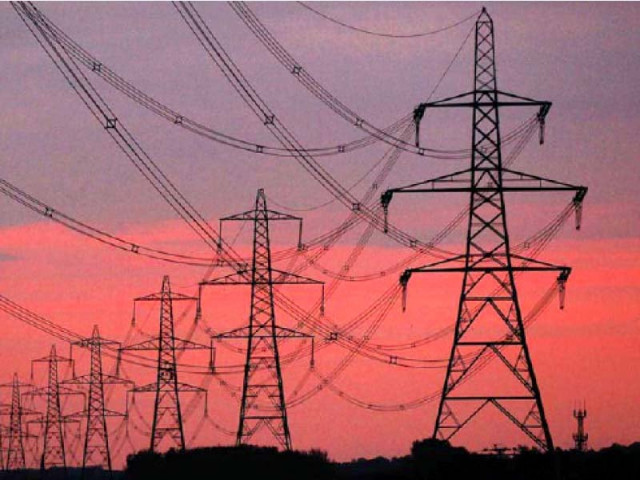Power sector woes: Pakistan reins in Rs2.2tr circular debt
Study highlights five major challenges plaguing Pakistan’s energy sector

The prolonged power outages in Pakistan are deeply rooted in the poor state of governance, particularly at the hands of distribution companies supplying electricity to end-consumers, and ill-planned growth in surplus supplies and stagnant demand.
The poor governance - like low recovery of monthly bills and high power theft - has given birth to the complicated ‘circular debt’. This has continued to compromise working capital at power production, transmission, distributions and oil and gas supplying firms.
Moreover, the non-stop addition of new production plants despite stagnant demand for years has continued to inflate ‘capacity payment’ to the standby plants. This is another huge financial burden and a grave cause of making power expensive for the end-consumers.
The two capital burdens - circular debt at Rs2.2 trillion and capacity payment at Rs1 trillion in 2020 - have crippled the power sector in the country.
“The high inefficiencies of distribution companies (like Quesco and Pesco) are contributing 60% towards the ever-growing circular debt, which is estimated to reach Rs4 trillion by 2025,” Engro Energy Limited CEO Ahsan Zafar Syed said while talking to The Express Tribune.
His comments were made in the wake of a study his firm conducted to sort out problems in the power supply chain titled ‘Fixing Pakistan’s Power Sector.’
The study indicated seven challenges in Pakistan’s power sector. Five of them are imminent ones. Putting them in a sequence, he said, circular debt has remained the biggest challenge among all. The government has to fix distribution companies to address the debt, as the companies’ inefficiencies are contributing 60% to the debt every year.
There are a total of nine distribution companies in Pakistan, excluding K-Electric. They are allowed to incur 16% line losses (which is recoverable from consumers through monthly bills). In addition to this, they book another 12% line losses, including due to theft.
Secondly, their recoveries remain low by up to 40% against the monthly bills. A large number of the consumers are in the habit of not paying their bills despite many of them being capable.
He suggested that provincial governments should be given ownership of the distribution companies in partnership with corporate entities. The governments should be given the task of recovering bills and law enforcement agencies should come into action against those who don’t pay their bills, he said.
At present, distribution companies are a federal subject while law enforcement agencies remain provincial subject, he added.
The federal government may link recovery of monthly bills from consumers with the NFC award through which federal government transfer resources to provincial governments every year, he said.
The corporate entities should be given the responsibility of operating the distribution companies on professional lines, he said.
“Pakistan and Turkey had similar issues in their respective power sectors in 1994. Turkey has resolved them by taking strict measures. We have been given three power policies since then but are still facing the decades’ old issues today as well,” he stated.
The second biggest challenge in the sequence is excess power production capacity. The government should not approve of setting up new production plants. “We still have 7,000MW surplus production capacity in the system as of today. It is estimated to be around 3,500MW in surplus by 2025.”
The third imminent issue is lower demand for power. The demand has remained low over the last decade despite an increase in economic activities. “The demand increased by 4% CAGR (compound annual growth rate) compared to GDP growth at 5.3% CAGR over the decade (2007-2019),” he said.
Surprisingly, the demand for power from households has remained higher than the one from the industrial sector. “This happens nowhere in the world,” he highlighted.
Syed said the GDP grew on back of services sector instead of manufacturing one. “The government should create an enabling environment for industrialisation to increase power demand and reduce capacity payment.” Besides, industries should be offered incentives to use power from the grid instead of producing their 5,000MW through captive power plants.
The fourth challenge is the high cost of power. Pakistan produces the most expensive power in the world. “Our cost of power production is 26% higher for the industrial sector compared to other regional countries like Vietnam, Sri Lanka, Malaysia, Bangladesh, South Korea, Thailand and India. It is 28% costlier for residential areas than the regional countries,” he said.
Pakistan has added 10,000-12,000MW production capacity in recent years and another 10,000 to 12,000MW is in the pipeline. Surplus power production and capacity payment to the standby plants has remained a major cause of producing expensive power.
“The capacity payments are estimated to soar to Rs4 trillion in 2025 due to ill-integrated planning in the sector in the past,” said the company official. The government should allow independent power producers to pay previously acquired expensive loans through acquiring new cheaper loans. And the period of paying off loans should be increased to 20 years from 10 years at present. This will also reduce the cost.
The fifth challenge is import of fuels (furnace oil, RLNG, and coal) to produce electricity. Almost 50% of the fuels are imported for generation at $5.5 billion. This is another huge burden on the national exchequer. “Pakistan should shift focus on renewable energy solutions (solar and wind power) and Thar coal to get rid of expensive import of fuels,” he suggested.
“Power outages and expansion of transmission infrastructure are not imminent challenges. They can be fixed later on...after a couple of years,” Syed emphasised.
Published in The Express Tribune, September 8th, 2020.
Like Business on Facebook, follow @TribuneBiz on Twitter to stay informed and join in the conversation.


















COMMENTS
Comments are moderated and generally will be posted if they are on-topic and not abusive.
For more information, please see our Comments FAQ